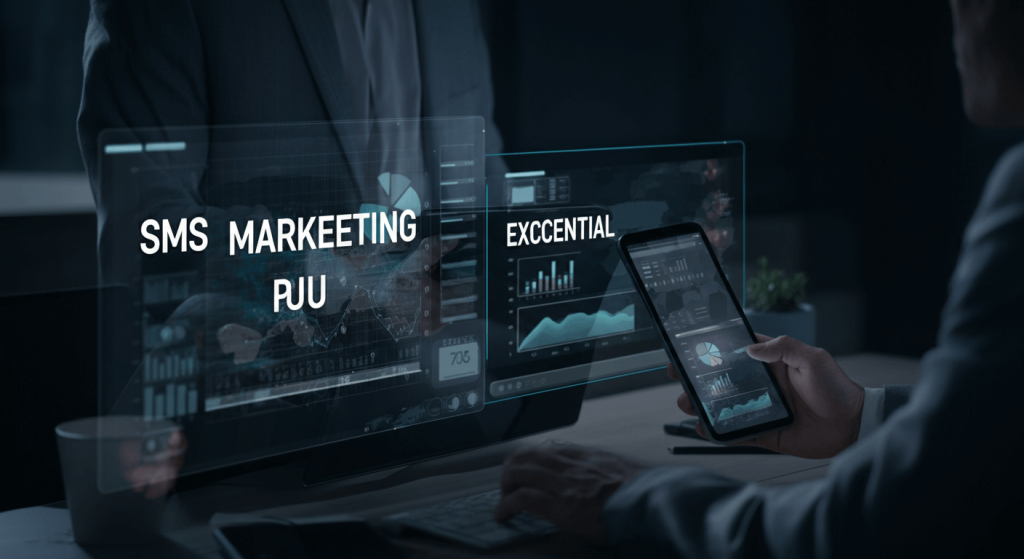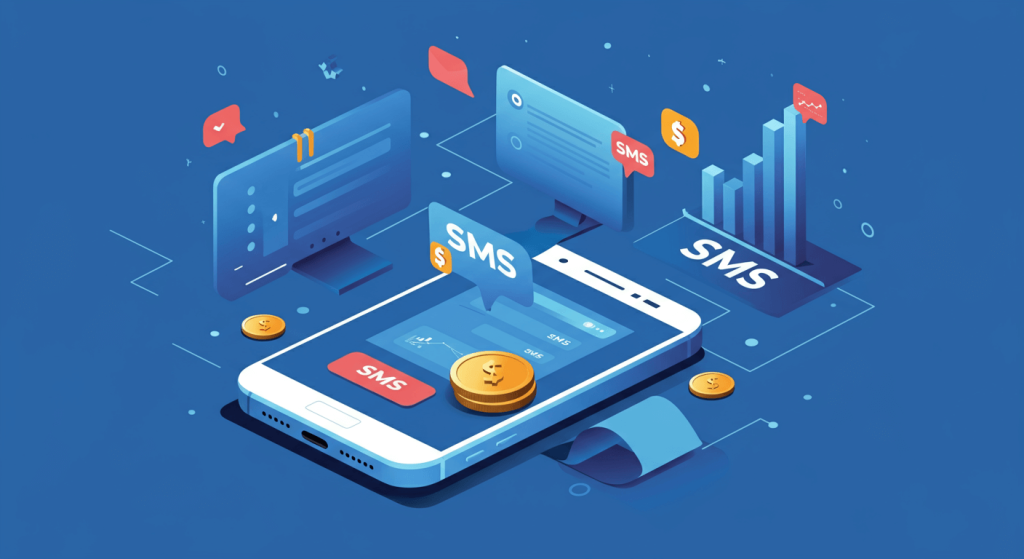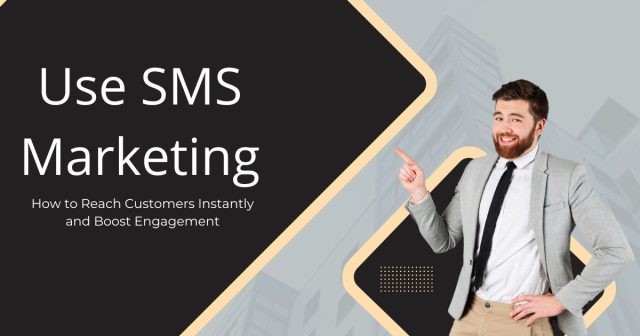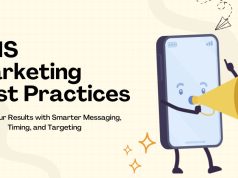SMS marketing often gets overlooked in favor of flashier digital channels, but smart businesses are discovering its unique power to cut through the noise and connect directly with customers. While social media algorithms limit your reach and email inboxes overflow with messages, text marketing delivers your message straight to the device your customers check 96 times per day.
This guide explores seven compelling reasons why SMS marketing deserves a place in your marketing strategy, backed by data and real-world examples that demonstrate its effectiveness across different industries.
SMS Marketing Delivers Unmatched Engagement Rates
The numbers don’t lie when it comes to SMS marketing performance. Text messages achieve a staggering 98% open rate compared to email’s 20-25% average. This means your carefully crafted messages actually reach customers instead of disappearing into crowded inboxes.
Response rates tell an equally impressive story. SMS campaigns typically generate 15-25% response rates, while email marketing averages just 2-5%. When customers receive your text message, they don’t just read it—they act on it.
Click-through rates for SMS campaigns average 19%, dramatically outperforming email’s 2-3%. This higher engagement translates directly into more website traffic, store visits, and conversion opportunities for your business.
The speed of engagement sets SMS apart from other channels. Customers read 90% of text messages within three minutes of delivery, creating opportunities for real-time customer interaction and immediate response to time-sensitive offers.
SMS Marketing Generates Exceptional ROI
SMS marketing delivers remarkable financial returns for businesses willing to invest in the channel. The average return on investment reaches $45 for every dollar spent, making it one of the most cost-effective marketing channels available.
Conversion rates for SMS campaigns consistently outperform other marketing channels. Retail businesses report conversion rates of 8-12% for text message campaigns, while service-based companies often see 10-15% conversion rates from promotional SMS.
The cost structure of SMS marketing contributes to its exceptional ROI. Sending text messages costs significantly less than producing video content, designing email campaigns, or running paid advertising. This low cost per message allows businesses to reach large audiences without substantial marketing budgets.
Revenue attribution becomes clearer with SMS marketing because customers typically act immediately after receiving messages. This direct connection between message and action makes it easier to measure and optimize campaign performance.

SMS Marketing Reaches Customers Where They Are
Mobile phones have become extensions of ourselves, and text messaging takes advantage of this constant connectivity. Unlike emails that sit unread or social media posts that disappear in feeds, text messages demand immediate attention.
The personal nature of SMS creates a direct line to your customers. Text messages feel more intimate than other marketing channels, which can strengthen customer relationships when used respectfully and strategically.
SMS marketing works across all demographics, though effectiveness varies by age group and communication preferences. Younger consumers respond exceptionally well to text message marketing, while older demographics appreciate SMS for practical communications like appointment reminders and service updates.
Location-based SMS campaigns can drive foot traffic to physical stores. Geo-targeted messages about local promotions or events leverage customers’ proximity to your business, creating immediate opportunities for in-person sales.
SMS Marketing Supports Time-Sensitive Communications
The immediate nature of text messaging makes it perfect for urgent communications and time-sensitive offers. Flash sales, limited-time promotions, and last-minute announcements generate immediate customer responses through SMS.
Emergency notifications and important updates reach customers instantly through text messaging. Businesses can communicate service disruptions, appointment changes, or urgent announcements without relying on customers to check email or social media.
Event-driven marketing becomes more effective with SMS. Product launches, restocking notifications, and exclusive previews create urgency that drives immediate action from interested customers.
Appointment reminders and service notifications through SMS reduce no-shows and improve customer satisfaction. Healthcare providers, salons, and service businesses use text messaging to keep customers informed and engaged.
SMS Marketing Integrates Seamlessly with Other Channels
SMS marketing becomes more powerful when combined with other marketing channels. Integrated campaigns that use SMS alongside email, social media, and advertising report 25% higher conversion rates than single-channel approaches.
Cross-channel promotion helps grow your SMS subscriber base. Include text opt-in opportunities in email newsletters, social media posts, and website content to expand your reach across platforms.
SMS can drive traffic to detailed content on your website or social media platforms. Use text messages to announce new blog posts, videos, or interactive content that requires more space than SMS allows.
Customer journey mapping becomes more sophisticated when SMS marketing connects with other touchpoints. Text messages can trigger email sequences, social media retargeting, or personalized website experiences.
SMS Marketing Offers Simple Implementation and Management
Setting up SMS marketing campaigns requires less technical expertise than many other digital marketing channels. Most SMS marketing platforms offer user-friendly interfaces that make campaign creation and management straightforward.
List management becomes simpler with SMS marketing because phone numbers are more stable than email addresses. Customers change email addresses frequently, but they typically keep phone numbers longer, providing more consistent contact information.
Automation capabilities in SMS marketing allow businesses to send triggered messages based on customer behavior, dates, or events. Welcome series, birthday messages, and purchase follow-ups can run automatically once configured.
Campaign performance tracking provides clear metrics for optimization. Delivery rates, open rates, and click-through rates offer straightforward insights into campaign effectiveness without complex analytics interpretation.

SMS Marketing Builds Stronger Customer Relationships
The personal nature of text messaging creates opportunities for more intimate customer communication. When used respectfully, SMS marketing can strengthen relationships rather than feeling intrusive or annoying.
Two-way communication through SMS allows customers to respond to your messages, ask questions, or request support. This interactive capability creates dialogue rather than one-way broadcasting, improving customer engagement and satisfaction.
Personalization becomes more impactful in SMS marketing because of the channel’s intimate nature. Messages that include customer names, purchase history, or location-specific offers feel more relevant and valuable.
Customer service integration through SMS provides convenient support options. Customers can text questions, request assistance, or receive order updates without navigating phone systems or email forms.
SMS Marketing Compliance and Best Practices
Successful SMS marketing requires understanding and following regulatory requirements. Businesses must obtain explicit consent before sending promotional messages, which actually helps build more engaged subscriber lists.
Opt-out management is crucial for maintaining compliance and customer satisfaction. Every promotional message must include clear unsubscribe instructions, and businesses must honor opt-out requests immediately.
Message frequency management prevents customer fatigue and maintains engagement. Most effective campaigns send 2-4 messages per month, providing consistent communication without overwhelming subscribers.
Content quality standards should be higher for SMS marketing because of the channel’s personal nature. Customers expect more value from text messages compared to other marketing channels, making relevant, useful content essential.
Making SMS Marketing Work for Your Business
SMS marketing effectiveness depends on strategic implementation with clear objectives and respect for customer preferences. Businesses that focus on providing genuine value through text messages often see SMS become one of their most effective customer communication channels.
Start by identifying use cases that align with your business goals and customer needs. Whether it’s promoting flash sales, sending appointment reminders, or sharing exclusive offers, choose applications that provide clear value to your audience.
Build your subscriber list organically through opt-in methods that communicate the value customers will receive. Avoid purchasing lists or using deceptive practices that can harm your reputation and campaign effectiveness.
Test different message formats, timing, and frequency to optimize performance for your specific audience. Small changes in approach can significantly impact engagement rates and customer satisfaction.
SMS marketing offers compelling advantages for businesses seeking direct, effective customer communication. Its exceptional engagement rates, strong ROI, and ability to reach customers instantly make it a valuable addition to most marketing strategies. The key to success lies in respecting customer preferences, providing consistent value, and integrating SMS thoughtfully with your other marketing efforts.
To boost brand visibility and engagement, consider why using SMS marketing offers 7 compelling reasons to start today, while also unlocking the potential of influencer marketing as part of a modern, multi-channel strategy.









